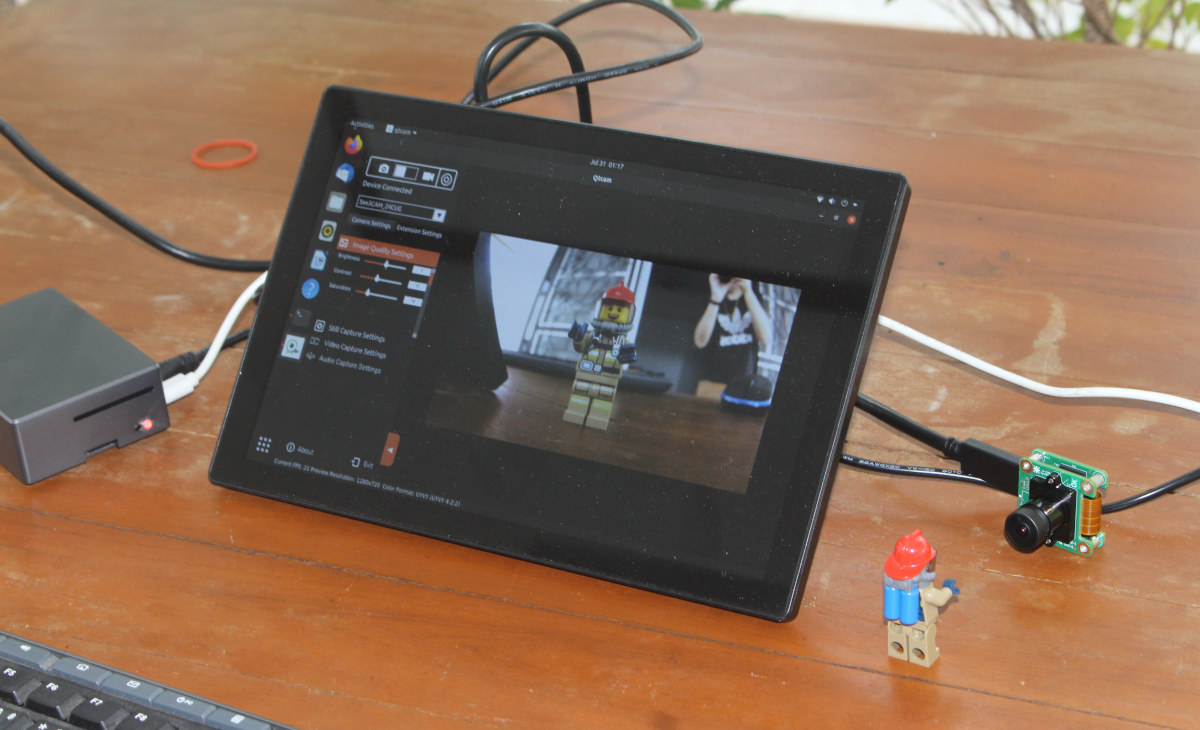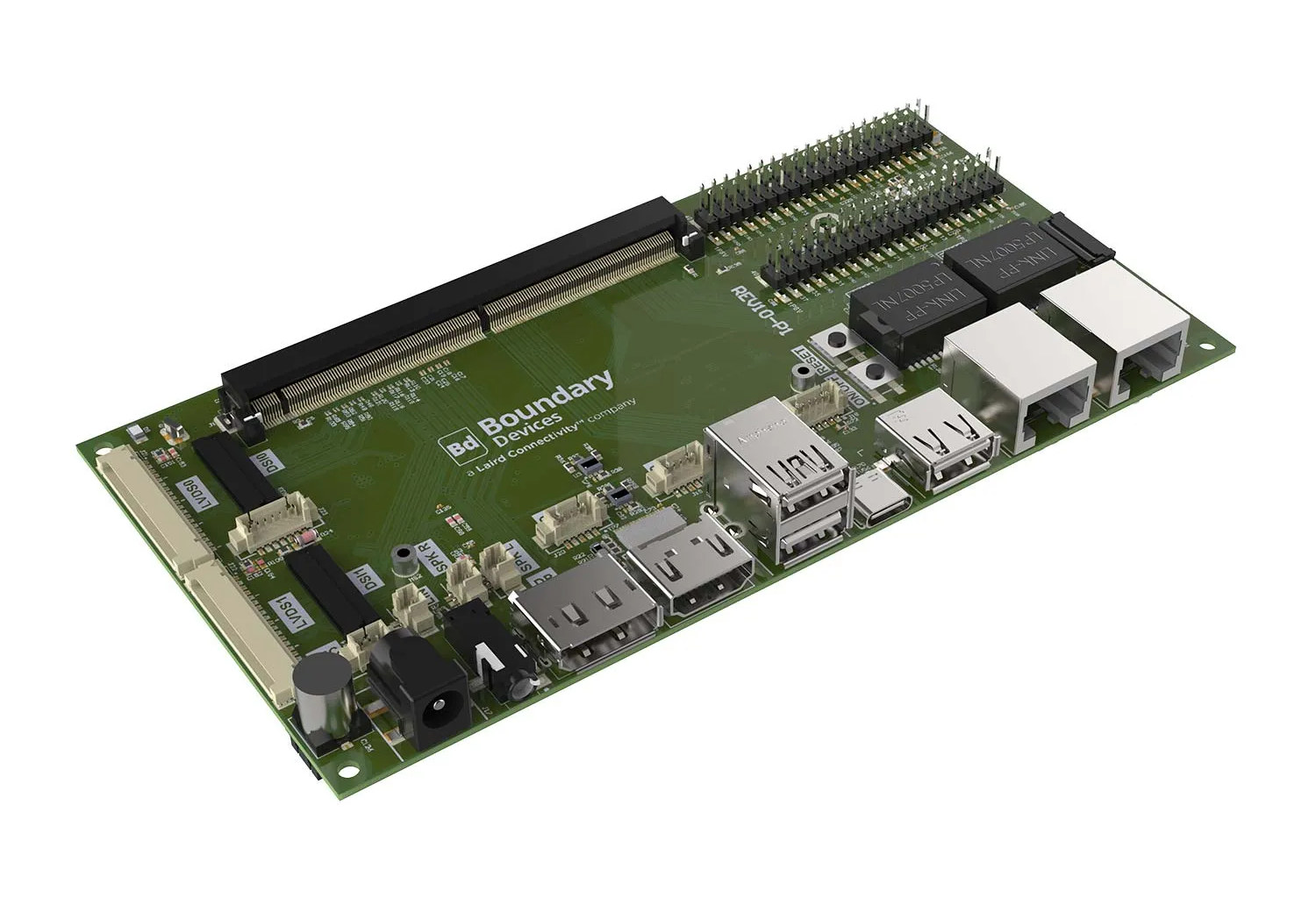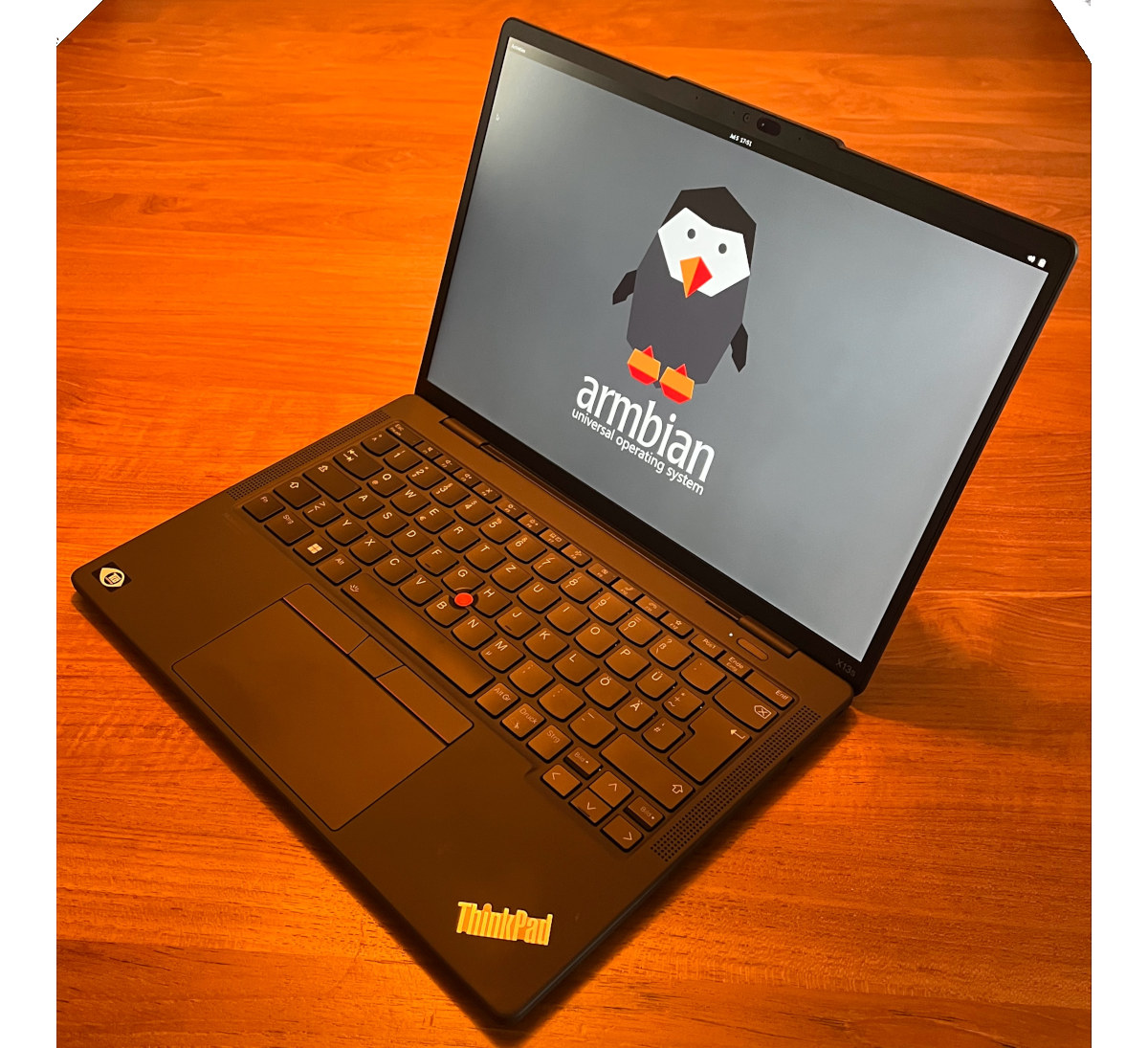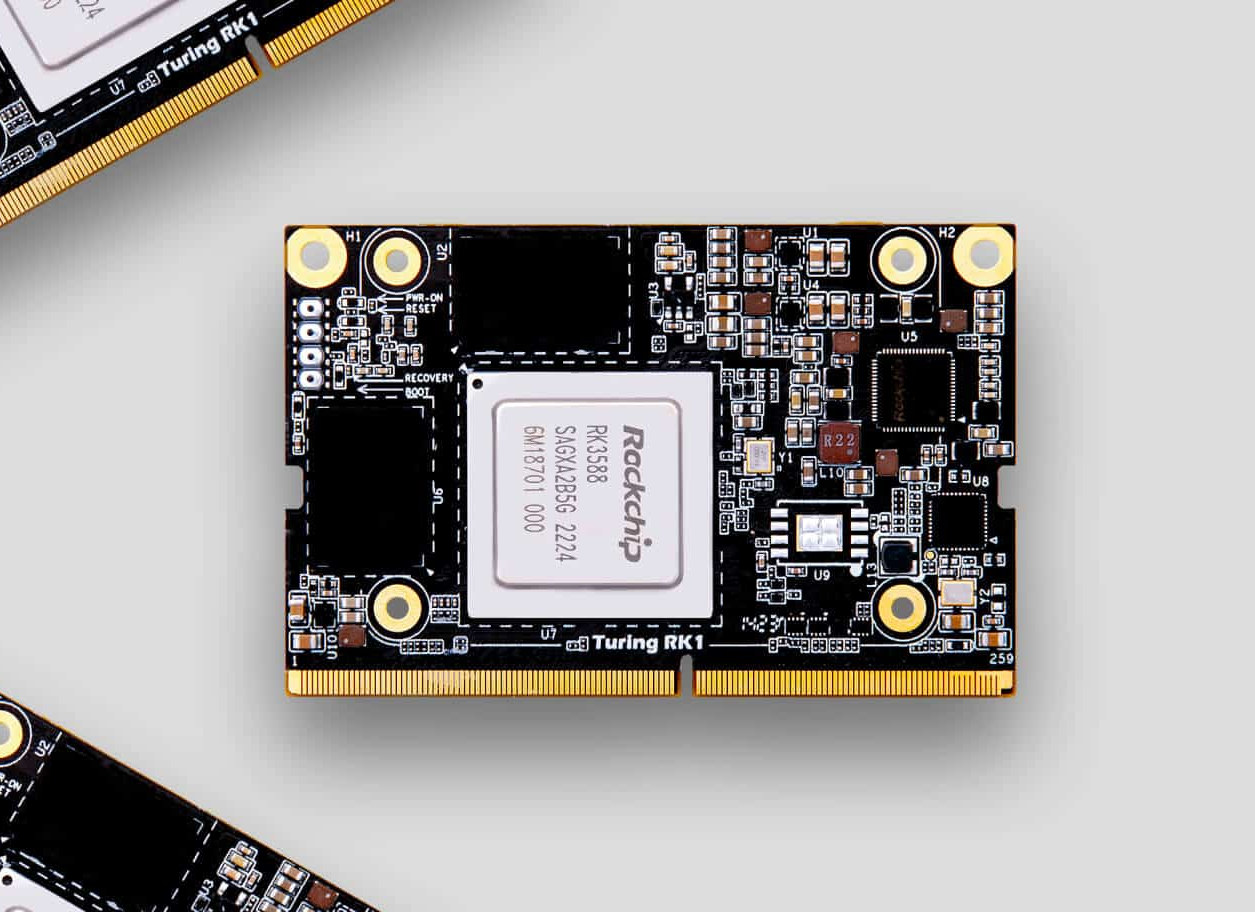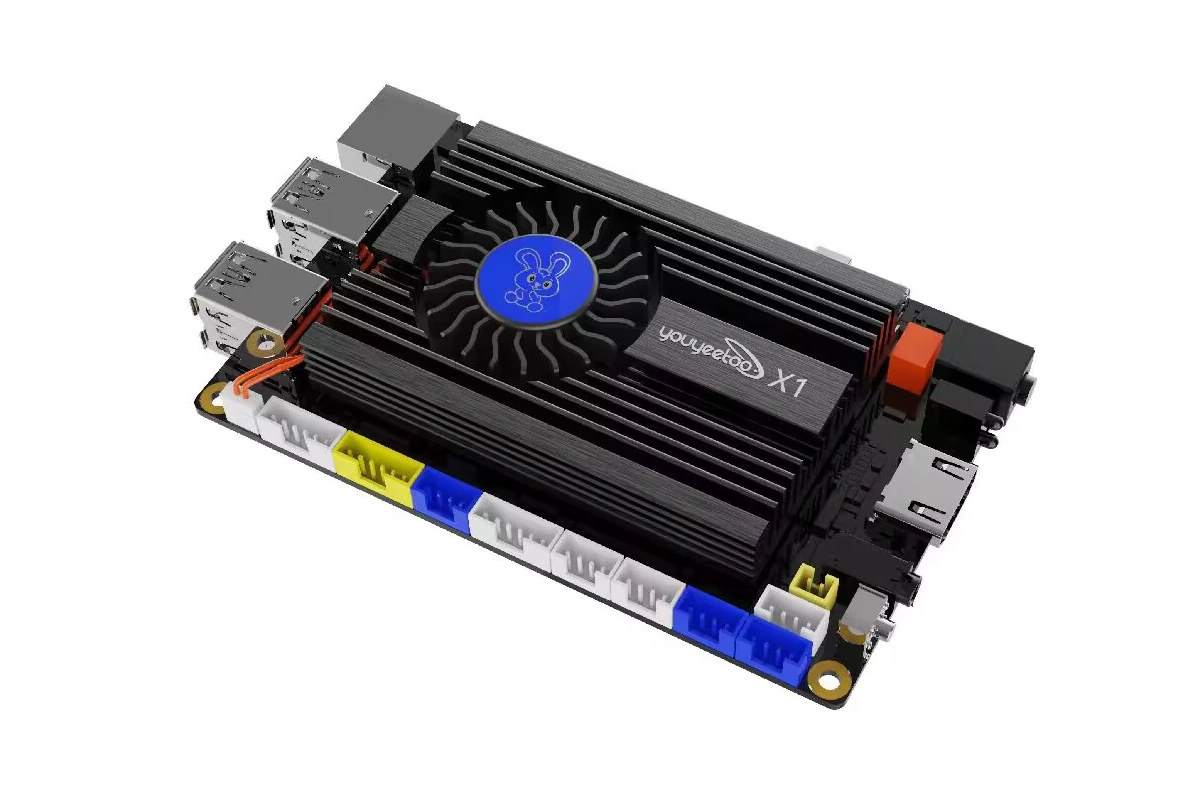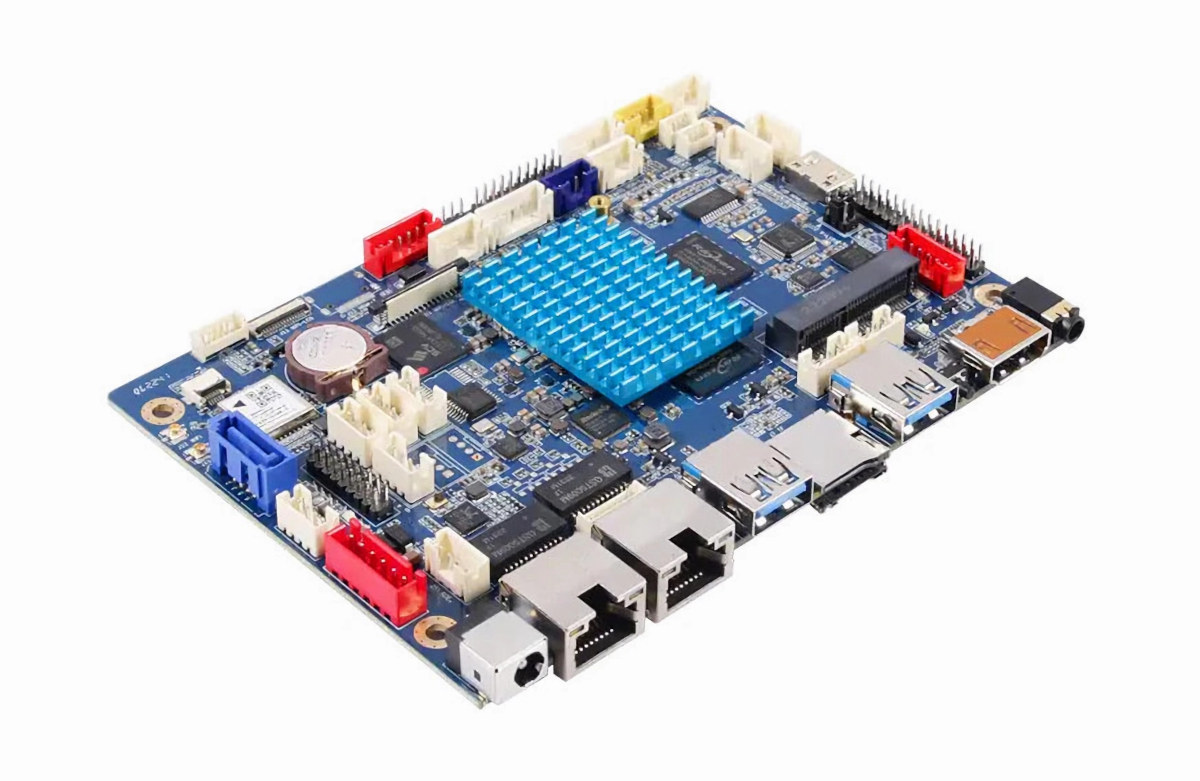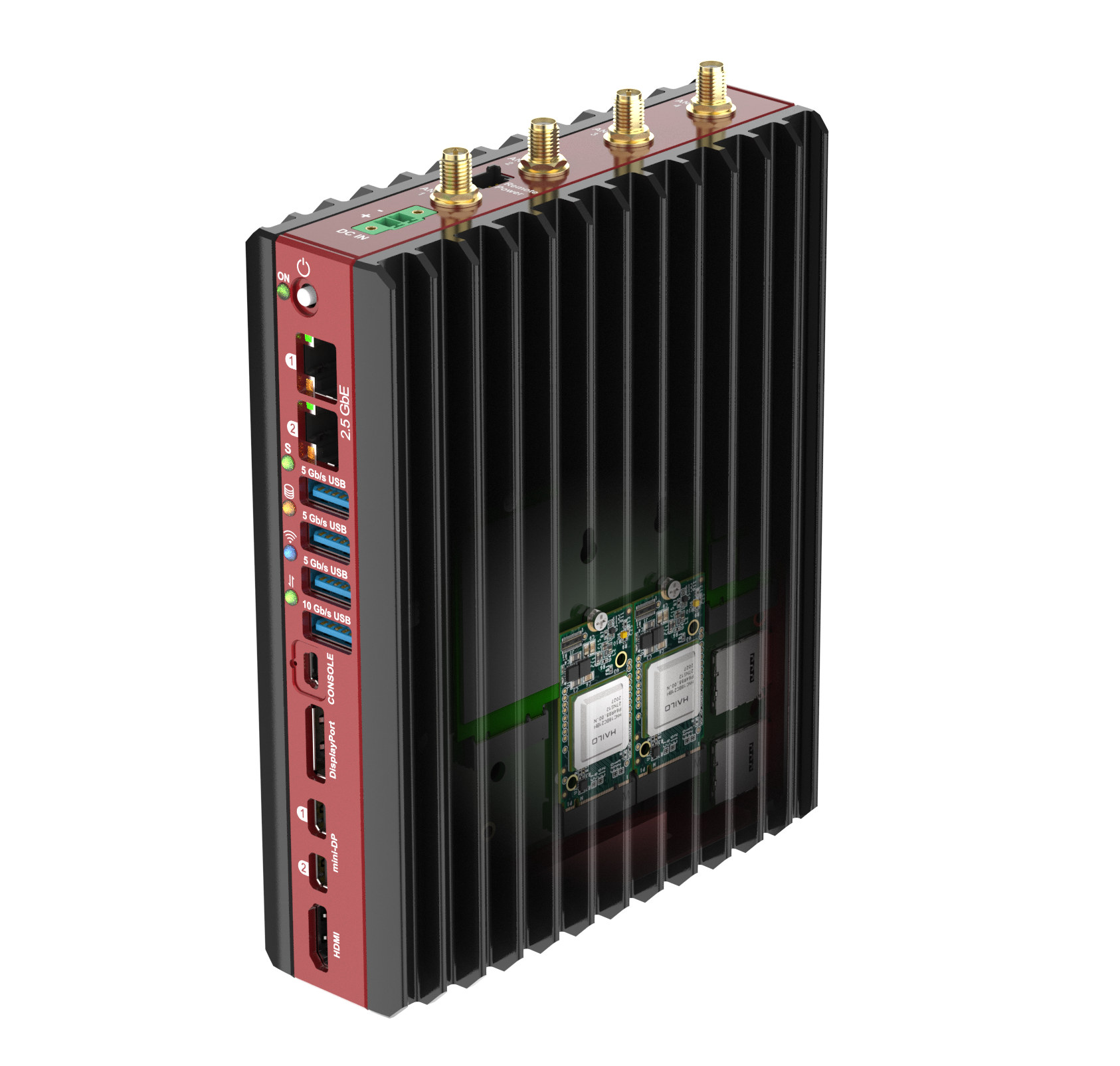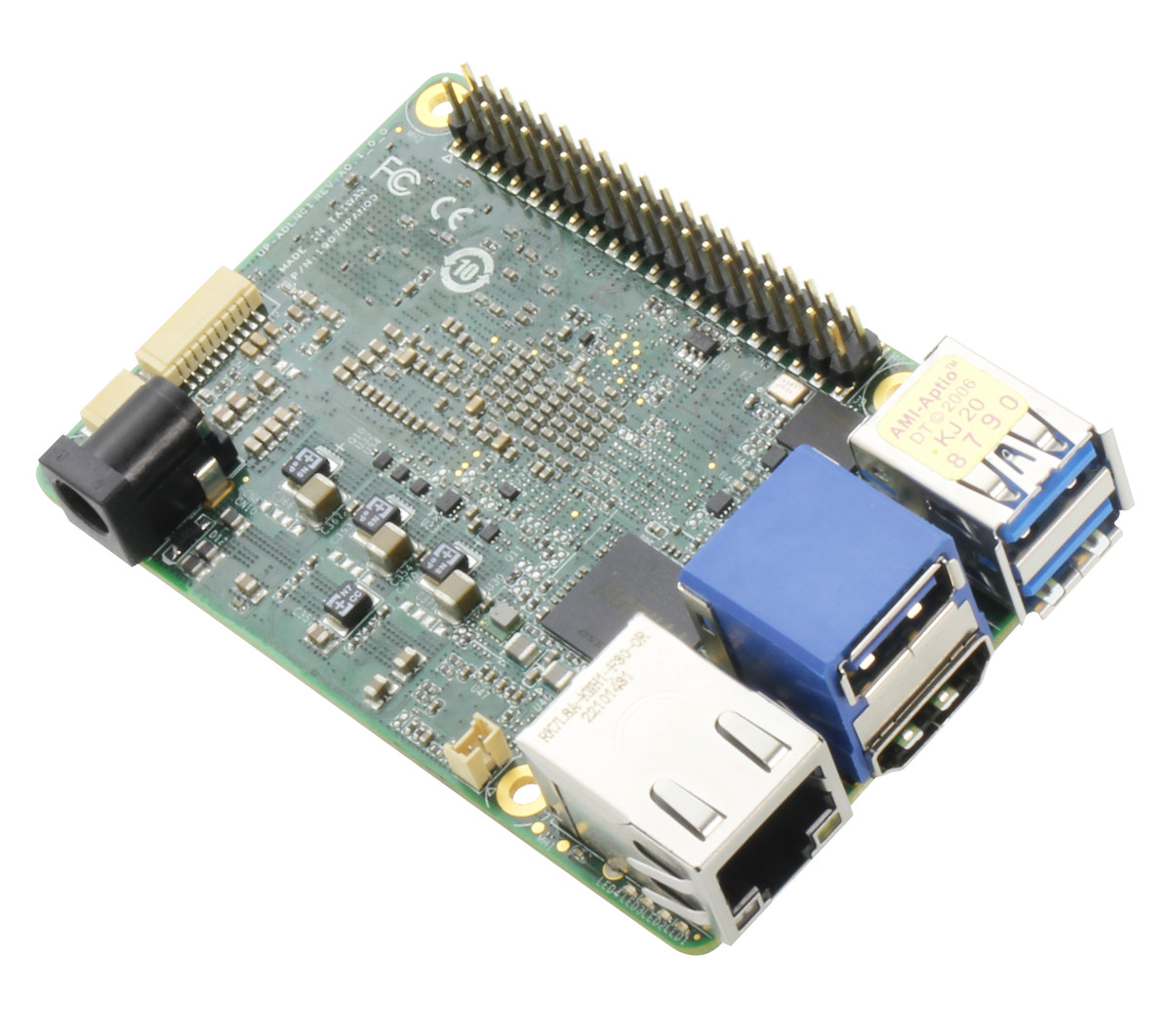e-con Systems See3CAM_24CUG a full HD color global shutter USB 3.1 Gen 1 camera based on an Onsemi AR0234CS CMOS image sensor capable of capturing moving scenes at up to 120 fps. This global shutter camera is especially useful for robotics and other applications that may require a high frame rate such as Automatic Number Plate Recognition (ANPR), Autonomous Mobile Robots (AMR), gesture recognition, drones, barcode scanners, factory automation, conveyor monitoring cameras, and traffic monitoring systems. e-con Systems sent a See3CAM_24CUG USB global shutter camera sample to CNX Software for review. I’ll go through an unboxing before testing in Ubuntu with both an AMD Ryzen 7 2700U laptop and a Raspberry Pi 4 single board computer. It happens to be based on the same sensor as the e-CAM20_CURB camera for Raspberry Pi 4 that we reviewed last year. See3CAM_24CUG specifications ON Semiconductor AR0234CS CMOS sensor with 1/2.6″ optical form-factor Global […]
Tungsten700 SMARC SoM and devkit features MediaTek Genio 700 AIoT processor
Laird Connectivity Tungsten700 SOM is a SMARC system-on-module powered by a MediaTek Genio 700 Arm Cortex-A78/A55 AIoT processor with up to 8GB LPDDR4, 16GB eMMC flash, and a Sona MT320 Wi-Fi 6/Bluetooth 5.3 module based on the Filogic 320 chipset. The board was designed by Boundary Devices, recently acquired by Laird, and is offered with a SMARC 2.1 carrier board that can be used for development or as a single board computer integrated into designs. Tungsten700 SMARC module Tungsten700 specifications: SoC – MediaTek Genio 700 (MT8390) CPU – Octa-core processor with 2x Arm Cortex-A78 cores @ up to 2.2 GHz, 6x Arm Cortex-A55 cores @ up to 2.0 GHz GPU – ARM Mali-G57 MC3 GPU VPU as in “Video Processing Unit” Encode up to 4Kp30 HEVC/H.264 Decode up to 4Kp75 HEVC/H.264/AV1/VP9 VPU as in “Vision Processing Unit” – Tensilica VP6 Vision Processing Unit ISP Single Camera: 32MP @ 30FPS Dual […]
Armbian Ubuntu 23.04 can now run on Lenovo X13S Arm laptop
The Lenovo X13S Windows 11 Arm laptop based on a Qualcomm Snapdragon 8cx Gen 3 processor can now run Armbian-built Ubuntu 23.04 Lunar images with GNOME or XFCE desktop environment. But before getting too excited note that this is a work-in-progress (WiP) port, so while it’s a nice development, there may be some issues. Let’s have a look at the available information. When laptop manufacturers started to sell Windows Arm laptops with Qualcomm processors, people wondered whether it would be possible to run Linux on the device, and a community formed around the idea of porting Linux to the Windows Arm laptops, and that gave rise to projects such as Aarch64 laptop. But the latter has not had any activity for a couple of years, and all the supported laptops are only partially supported. But Ricardo Pardini did some work to create an Armbian build for the Lenovo ThinkPad X13S […]
Turing RK1 RK3588 system-on-module for cluster boards is now available (for pre-order)
Turing Pi has been making mini-ITX cluster boards for Raspberry Pi CM4 and NVIDIA Jetson modules for over four years, but last year, the company teased their own Turing RK1 system-on-module based on a powerful Rockchip RK3588 Arm processor with 6 TOPS NPU while launching the Turing Pi 2 cluster board on Kickstarter and raising over 2 million dollars in the process. The Turing RK1 is now available for pre-order with the 8GB RAM going for $130, the 16GB model for $170, and you’d have to spend $260 if you need 32GB RAM. Most people will probably want to add $10 to purchase the RK1 heatsink with a built-in fan as well. Pre-orders are expected to start shipping on October 27. Turing RK1 specifications: SoC – Rockchip RK3588 CPU – Octa-core processor with 4x Arm Cortex-A76 @ 2.4 GHz, 4x Arm Cortex-A55 @ 1.8 GHz GPU – Arm Mali-G610 MP4 […]
Youyeetoo X1 – A Compact Intel Jasper Lake SBC going for $110 and up
Youyeetoo X1 is a compact Intel Celeron N5105 Jasper Lake SBC with up to 16GB RAM, optional eMMC flash of up to 256GB capacity, support for an M.2 NVMe or SATA SSD, up to three video outputs, Gigabit Ethernet, and optional WiFi and Bluetooth or 4G LTE connectivity. In some ways, it reminds me of the Zimaboard, but the X1 SBC comes with an 11th Gen Jasper Lake processor instead of a 7th Gen Apollo Lake processor, it’s cooled with a fan and heatsink instead of being fanless and does offer more I/Os. Youteetoo X1 specifications: SoC – Intel Celeron N5105 quad-core Jasper Lake processor @ 2.0 GHz / 2.9GHz (Turbo), with Intel UHD Graphics @ up to 800MHz; TDP: 10W System Memory – 4GB, 8GB, or 16GB LPDDR4 Storage Optional eMMC flash with 64GB, 128GB, or 256GB capacity M.2 Key-M socket for M.2 2280 NVMe or SATA SSD SATA […]
Liontron Rockchip RK3588 motherboard ships with 32GB RAM for $352
We recently noted Firefly had started selling their Rockchip RK3588(S) boards with 32GB RAM, but pricing starts at $469, so lower cost options may be worth a look at, and Liontron sells a Rockchip RK3588 motherboard with 32GB RAM for $352 including shipping (note: it’s a brand new shop started in June 2023). The single board computer also comes with up to 128GB eMMC flash, SATA storage support, HDMI 2.1 video output, three LCD interfaces, dual Gigabit Ethernet, WiFi 6 and Bluetooth 5.0, and more. All that is offered in a low-profile motherboard that’s only marginally thicker (14mm vs 11mm) than the RWA027-RK3588 SBC we covered earlier this week. Liontron RK3588 motherboard specifications: SoC – Rockchip RK3588 CPU -Octa-core processor with 4x Cortex-A76 cores @ up to 2.4 GHz, 4x Cortex-A55 cores @ 1.8 GHz GPU – Arm Mali-G610 MP4 quad-core GPU with OpenGL ES3.2 / OpenCL 2.2 / Vulkan […]
Bedrock R7000 Edge AI fanless computer combines AMD Ryzen 7 7840HS CPU with Hailo-8 AI accelerators
SolidRun Bedrock R7000 Edge AI fanless computer combines an 8-core AMD Ryzen 7840HS/U Zen4 processor and up to three Hailo-8 AI accelerators for artificial intelligence applications in harsh environments with an industrial temperature range of -40ºC to 85ºC. The industrial embedded system comes with up to 64GB DDR5 memory, supports up to three M.2 NVMe SSD, and offers various interfaces such as dual 2.5GbE and four 4K-capable display interfaces using HDMI and DisplayPort. Just like the previous generation mode, the AMD Ryzen Embedded V3000-powered Bedrock V3000 fanless industrial computer, the BedRock R7000 is offered in three different form factors including the 30W and 60W dissipation model with integrated heatsink fins, and a tile variant designed to be fastened to a cold plate on a chassis. Bedrock R7000 Edge AI specifications: SoC – AMD Ryzen 7 7840HS or 7840U octa-core Zen4 processor clocked at 3.8 GHz / 5.1GHz (Turbo) with Radeon […]
UP 7000 is a powerful x86 alternative to the Raspberry Pi 4 SBC with an Intel Processor N50/N97/N100 CPU
AAEON UP 7000 is an x86 single board computer with a layout similar to the Raspberry Pi 4 but based on a more powerful Intel Processor N50, N97, or N100 Alder Lake-N SoC with Gigabit Ethernet, three USB 3.2 Gen 2 ports, HDMI 1.4 video output, and a 40-pin GPIO header. Not to be confused with the larger UP Squared Pro 7000 also powered by an Alder Lake-N processor, the UP 7000 is an update to the UP 4000 SBC with an Intel Apollo Lake processor introduced just last year. The new fanless board also comes with up to 8GB LPDDR5, 64GB eMMC flash, and an onboard TPM 2.0. UP 7000 (SKU: UP-ADLN01) specifications: Alder Lake-N SoC Intel Processor N50 dual-core processor up to 3.4 GHz with 6MB cache, 16EU Intel UHD Graphics Gen 12 @ 750 MHz; TDP: 6W Intel Processor N97 quad-core processor up to 3.6 GHz with […]


